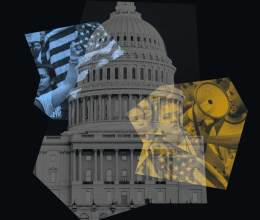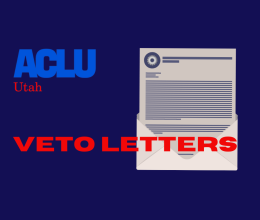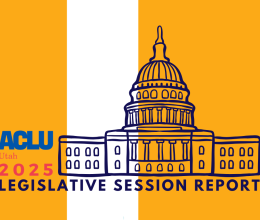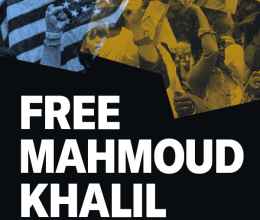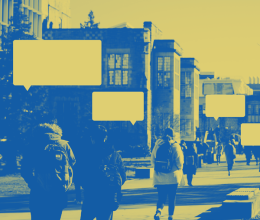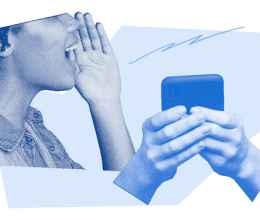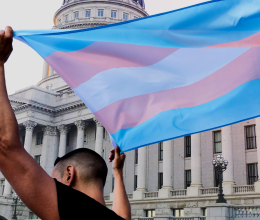
Let us be clear: the First Amendment has not changed in Utah. The people of Utah today retain the same right to protest and engage in other activities protected by the First Amendment as they did in 2020.
Why the confusion? Because some lawmakers in Utah and other states have reacted to calls for police reform by introducing numerous bills to try to limit people’s free speech rights. Many of these bills, for example, sought to expand the definitions and increase the penalties for “rioting,” aiming to chill lawful protest activities.[1] Other bills would extend legal protections to drivers who hit protestors with their vehicles.[2]
Download this blog post as a (PDF)
Utah was not immune from this national wave of anti-protest bills.[3] While Utah lawmakers proposed similar bills during the most recent legislative session, however, almost all of them failed to become law. H.B. 58 was the only such bill to pass. Under this new law, a person arrested for rioting must appear before a judge before being released and pay restitution if convicted.[4]
But neither H.B. 58, nor any other state statute anywhere, changed the Free Speech rights protected by the First Amendment. People in Utah—whether alone, in a small crowd, or as part of a massive group—retain their constitutionally protected right to engage in protest and other expressive activities. These rights are at their strongest in public forums such as streets, sidewalks, parks, and public areas in front of government buildings and the legislature.
While the government may restrict the time, place, and manner of protests in these places, these restrictions must serve a substantial interest (such as traffic safety) and be narrowly tailored to serve that interest. This means, for example, that the government cannot ban all protests on sidewalks simply because a protest on a sidewalk once resulted in some destruction to property. Additionally, the government cannot make or selectively enforce laws and ordinances to target viewpoints the government may not like or want to hear. For example, a city cannot enforce a noise ordinance only against groups that protest government action.
Freedom of speech, the right to protest, and the right to dissent are all crucial to the creation and preservation of constitutional democracy. No bill considered or passed in 2021 State Legislative Session has altered—or can alter—these rights and freedoms in Utah.
Download this blog post as a (PDF)
Download the ACLU of Utah's "Know Your Rights: Your Right to Protest FAQ" (PDF)
[1]https://www.theguardian.com/world/2021/apr/12/republicans-push-anti-protest-laws-blm-demonstrations
[2]https://www.abc4.com/news/national/new-legislation-would-protect-drivers-who-hit-protestors/
[3]https://www.fox13now.com/news/local-news/bill-bans-protests-at-peoples-homes; https://www.ksl.com/article/50111259/utah-among-states-where-new-legislation-would-protect-drivers-who-hit-protesters; https://www.deseret.com/utah/2021/2/17/22288404/legislature-lawmakers-advance-bill-to-toughen-rioting-penalties-protests-black-lives-matter.
